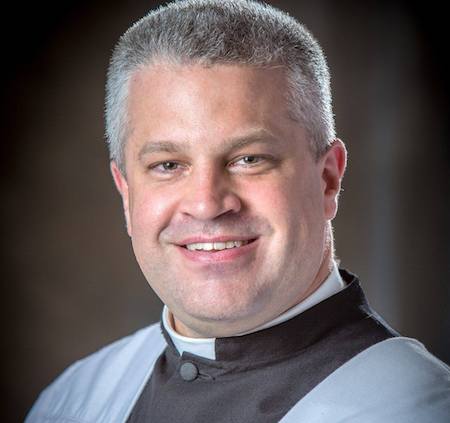The season of fall calls to mind death and the shortness of our earthly lives. As leaves change color and fall to the ground, we are reminded that our time, too, is limited, and comes to a kind of end.
For this reason, in the month of November, Catholics traditionally devote this month to prayer for souls in purgatory. We are convinced that death need not separate us from our loved ones. We have a founded hope that we still have communion with them as members of the church: that in death, as in life, we can still pray for each other.
This belief is a matter of division among Christians. There is historical evidence that Christians of the earliest centuries held this belief. It likely follows from what the Jews of the time of Christ believed. Catholic bibles give evidence for this.
The setting is the Maccabean revolt against Greek rule in the second century before Christ. The passage in II Maccabees 12:36-46 tells of the aftermath of a particular battle in which those Jews who had died were found to be wearing good-luck charms. By invoking the protection of a foreign god, they had committed a sin of idolatry. This common sin of all those who had died in that battle was clearly seen as punishment from God.
What follows is telling: the surviving soldiers prayed for the dead (v. 42) and the hero of the story took up a large collection in order to have sacrifices for the dead made in the temple (v. 43). In this, the text tells us, “if he were not expecting the fallen to rise again, it would have been superfluous and foolish to pray for the dead” (v. 44). He “made atonement for the dead that they might be absolved from their sin” (v. 46) and thus “acted in a very excellent and noble way” (v. 43).
Even if some Christians relegate this text to the “Apocrypha” and deny that it is divinely inspired, it still gives evidence for what Jews of the time believed.
Did Christ Himself correct this erroneous teaching? No. In fact, he supported it. We read in Matthew 12:32: “whoever speaks a word against the Son of Man will be forgiven; but whoever speaks against the holy Spirit will not be forgiven, either in this age or in the age to come.” Here, Christ notes exactly one sin is not forgivable “in the age to come.” This tells us that other sins can be forgiven “in the age to come,” especially given the context of what some of His contemporaries believed.
There is further evidence. Christ tells us in Matthew 5:24-26: “Settle with your opponent quickly while on the way to court with him. Otherwise your opponent will hand you over to the judge, and the judge will hand you over to the guard, and you will be thrown into prison. Amen, I say to you, you will not be released until you have paid the last penny.”
From this passage, Augustine of Hippo equated the opponent and the judge as the same person: Christ (Sermon #9, preached in the year 420 or so). Some 200 years earlier, Tertullian equated the “prison” in this text to a time of purification after death (see his De Anima, #58). We see in this Gospel text an encouragement to rightly order our lives to Christ before our death, where Christ will sit in judgment. There are two alternatives should we fail: that we will “pay the last penny” for our sins before enjoying our life to come, or worse: hell, forever.
The Catholic Church has held onto this early Christian belief and practice. As a result, our funeral rites are not ordered so much as a “celebration of life” to comfort the living but rather to help us pray for the one who died. The month of November is dedicated to the memory of all who have died. It gives a further reminder to us to continue to pray for them.
As fall gives way to winter, so too does our life give way to death and judgment. May our hope continue to be in the eternal spring: resurrection with Christ to eternal life forever. May our winter be short.



Wow. We, at St Anne’s Palmyra, New York, were just discussing purgatory at our coffee hour after Mass today May 26. It is a subject not often mentioned nowadays. The reason I came across your article is because you will be our next Parochial Vicar, and I looked up your name, and this came up. We are looking forward to meeting you.
Sincerely,
Darryl David Amato